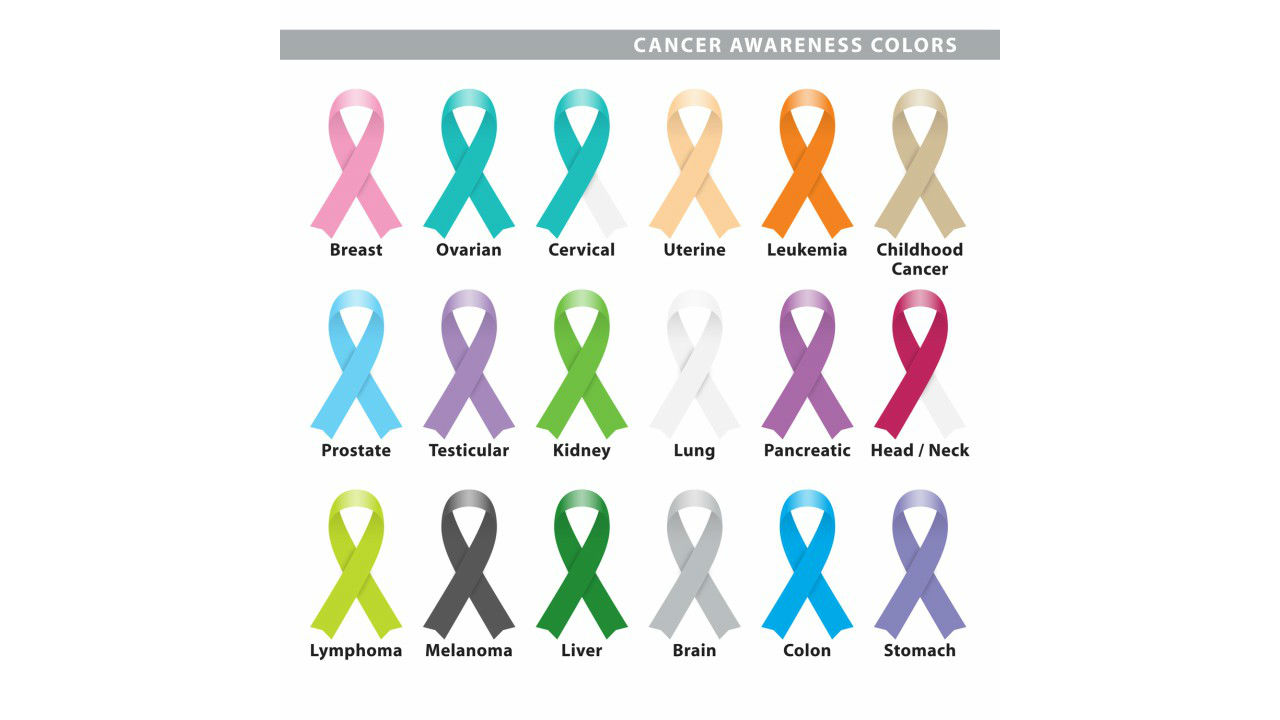 padrinan_alba/fotolia
padrinan_alba/fotolia
Today there are ribbons to signify support for all types of illnesses. It can be a bit overwhelming to see so many colors and not know what at least some of them stand for.
The idea to show recognition using ribbons has roots in early times when Napoleon was quoted as saying, “A soldier will fight long and hard for a bit of colored ribbon.”1
Many of you may remember the 1973 hit song “Tie a Yellow Ribbon Round the Ole Oak Tree,”about a man returning from prison after three long years, not knowing if his wife still loved him. He instructed her to tie a yellow ribbon around an old oak tree if she still wanted him to come home. She covered the tree in yellow ribbons.
In 1981, Penelope Laingen, wife of the U.S. chargé d’affaires in Tehran, tied a yellow ribbon to a tree in front of her home in Maryland while waiting to welcome her husband Bruce Laingen home from Iran.
A red ribbon became known in the 1990s for AIDS awareness. Since that time, ribbons have been used to show support for many illnesses. Some of the same colors are used to signify different types of cancer.
Some of the more common types of cancer are listed below. Many offer descriptions from links to Verywell.com, Cancer.gov and the American Cancer Association.
All types of cancer — Light Purple or Lavender ribbon
Bladder Cancer — Yellow
Bone Cancer — Yellow
Bone Marrow Transplant — Yellow
Brain Cancer — Gray
Breast Cancer (Women) — Pink
Breast Cancer (Hereditary ) — Teal and Pink
Breast and Gynecologic Cancers together — Teal and Pink
Breast Cancer (Men) — Light Pink and Baby Blue
Cancer Survivor — Purple
Cervical Cancer — Teal and White
Cholangiocarcinoma — Yellow
Chondrosarcoma — Yellow
Colorectal and Colon Cancer — Blue or Brown
Endometrial Cancer — Peach
Esophageal Cancer — Light Purple or Periwinkle
Ewing's Sarcoma — Yellow
Gallbladder Cancer — Yellow
Gastric Cancer — Periwinkle Blue
Glioblastoma — Gray
Gynecological Cancer — Teal
Cervical Cancer, Ovarian Cancer, Uterine Cancer and Vaginal Cancer — also Teal
Head and Neck Cancer — Burgundy and Ivory or Red and White
Hodgkin’s Lymphoma — Violet
Kidney Cancer (Renal Cell Carcinoma) — Green or Orange
Laryngeal Cancer — Burgundy and White
Leiomyosarcoma — Purple
Leukemia — Orange
Leukemia and Lymphoma Together — Red/White/Red Stripes
Liver Cancer — Emerald or Jade Green
Lung Cancer — Pearl, Clear or White
Lymphedema — Light Blue
Lymphoma (Non-Hodgkins) — Lime Green
Melanoma — Black
Mesothelioma — Pearl or Black
Myeloma — Burgundy
Myeloproliferative Diseases — Orange and Red
Neuroendocrine Cancers — Black and White (Zebra)
Oral Cancer — Burgundy and White or Red and White
Osteosarcoma — Yellow
Pancreatic Cancer — Purple
Pharyngeal Cancer — Burgundy and White
Prostate Cancer — Light Blue
Rare Diseases (Including Rare Cancers) — Black and White (Zebra)
Rectal Cancer — Blue
Retinoblastoma — White
Sarcoma — Yellow
Skin Cancer — Orange (with a sun)
Skin Cancer (Squamous Cell Carcinoma) — Red and White
Small Intestine Cancer — Periwinkle Blue
Stomach Cancer — Periwinkle Blue
Testicular Cancer — Purple (Orchid or Violet)
Throat Cancer — Burgundy and White
Thyroid Cancer — Blue/Pink-Purple/Teal
Michele is an R.N. freelance writer with a special interest in women’s health care and quality of care issues.
Edited by Jody Smith
1) Awareness Ribbons - How It All Started. About.com. Retrieved Nov. 12, 2016.
http://webclipart.about.com/od/specialtyclipart/ss/Awareness-Ribbons-How-It-All-Started.htm
2) Cancer Ribbon Colors and Meanings. VeryWell.com. Retrieved Nov. 12, 2016.
https://www.verywell.com/cancer-ribbons-colors-meanings-2249253
3) “Tie a Yellow Ribbon Round the Old Oak Tree” tops the U.S. pop charts and creates a cultural phenomenon. History.com. Retrieved Nov. 12, 2016.
http://www.history.com/this-day-in-history/tie-a-yellow-ribbon-round-the-old-oak-tree-tops-the-u-s-pop-charts-and-creates-a-cultural-phenomenon
4) The forgotten cause of the Red Ribbon. ABC.net. Retrieved Nov. 12, 2016.
http://www.abc.net.au/news/2012-12-03/jobling---red-ribbon/4404218




Add a CommentComments
There are no comments yet. Be the first one and get the conversation started!